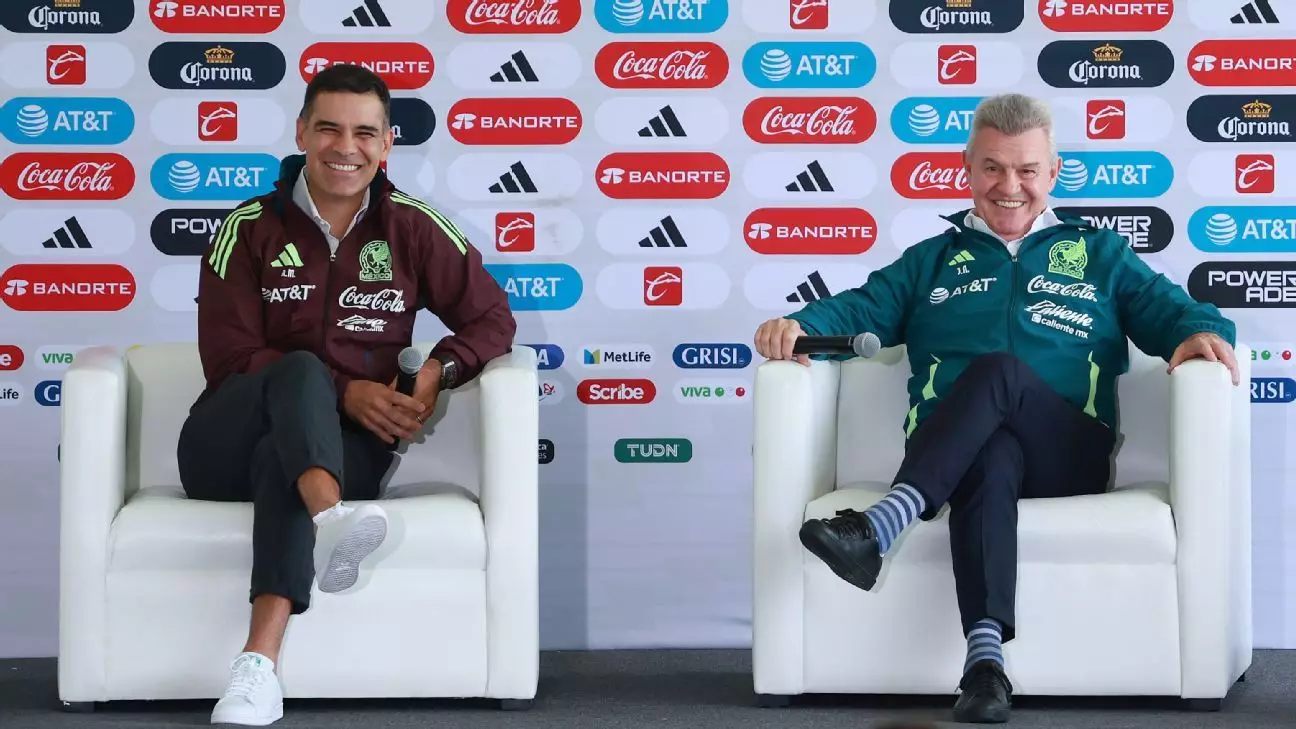Mexico’s men’s national team has once again turned to head coach Javier Aguirre to lead the team in a crucial period. This marks the third time Aguirre has been appointed as El Tri’s leader, with previous stints aimed at helping Mexico qualify for the World Cup in 2002 and 2010. The recent announcement of Aguirre’s return has brought a sense of familiarity, but also raised questions about the team’s direction moving forward.
During the introductory press conference, it was revealed that Aguirre’s plan extends beyond just the upcoming World Cup qualifiers. The long-term strategy involves Aguirre leading the team through the 2026 World Cup, followed by a transition to assistant coach and El Tri legend Rafa Marquez taking over for the 2030 cycle. This shift towards a more comprehensive and forward-thinking approach is a positive sign for Mexico’s national team, which has recently faced challenges and disappointing results on the international stage.
Challenges and Opportunities
The current state of the Mexican national team reflects a period of struggle and setbacks, including a lack of success in recent tournaments and a decline in FIFA rankings. Despite these challenges, Aguirre’s track record of turning around struggling teams, as seen during his time at Mallorca in Spain, offers hope for a revival. The focus on maximizing the potential of existing players and nurturing young talent is a key aspect of Aguirre’s strategy, aiming to improve the team’s depth and competitiveness in the long run.
Contrary to misconceptions, Aguirre’s coaching style is not rigid or defensive-minded. The coach emphasized his flexibility in adapting tactics based on the opponent, the scoreline, and the game situation. His willingness to experiment with different formations and strategies, such as the 5-3-2 used at Mallorca, showcases his adaptability and creativity as a coach. This approach aligns with the need for Mexico to evolve and stay competitive in the ever-changing landscape of international soccer.
Building for the Future
With Marquez’s experience and leadership skills, there is hope for a seamless transition towards a new generation of players for Mexico’s national team. The focus on promoting young talent and providing opportunities for promising youth players highlights the commitment to sustainable success beyond immediate results. Marquez’s involvement in the long-term plan signals a shift towards continuity and development within the team structure.
As Mexico prepares for the 2026 World Cup and beyond, the appointment of Aguirre and the strategic vision outlined during the press conference present a new chapter for the national team. The emphasis on pride, professionalism, and progress sets the stage for a renewed sense of optimism among fans and stakeholders. With the clock ticking towards upcoming friendlies and qualifying matches, the challenge now lies in translating aspirations into concrete results on the field. Mexico’s journey under Aguirre’s leadership promises to be an intriguing blend of tradition, innovation, and ambition, shaping the future of the nation’s soccer legacy.

Leave a Reply